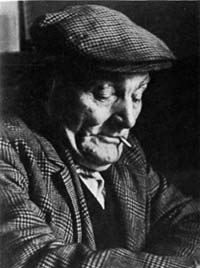Here’s one last Napoleon song (for the time being). It’s a song which I’ve only learned in recent weeks, although I’ve been aware of it for a very long time. I first came across it in Frank Purslow’s book Marrowbones, where the words are set to a slowed down version of the dance tune The Rose Tree. Since then I’ve heard numerous versions both on record and at folk clubs and festivals, but have never really felt inclined to take the song up. Largely, I think, because of the rather confused narrative structure of the song – who, exactly, is supposed to be talking to whom? And when? And in what tense? And why, yet again, does Napoleon think the best way to get to Russia from France is to go over the Alps?
The general consensus is that it’s a conversation between Napoleon’s only legitimate son, Napoleon Francis Joseph Charles (Prince Imperial, King of Rome, Prince of Parma, Placentia and Guastalla, Duke of Reichstadt, blah blah blah) and his mother, Napoleon’s second wife, Marie Louise, Duchess of Parma. I’ve no idea if the young Napoleon had delusions of restoring the glories of his father’s Empire, but it seems likely enough, given his father’s own inflated sense of self-worth, and the way that, later in the century, Louis-Napoleon / Napoleon III traded heavily on the family name. At all events, although he showed promise in his military training in exile in Austria, in 1832 he caught pneumonia, followed by TB, and drooped his youthful head for the last time, at the age of only 21.
What made me sit up and take notice of the song was hearing the Hastings fisherman Noah Gillette singing it on You Never Heard So Sweet, one of the second tranche of Topic’s The Voice of the People series, released in 2012. That recording was made by Bob Copper during his song-collecting days for the BBC, in 1954, and Bob’s time among the fishermen of Hastings Old Town is recounted in chapter 6 of his book Songs and Southern Breezes. The song was actually the opening track on the 1977 Topic LP Songs and Southern Breezes, an album I have never owned, but had heard a couple of times over the years. I can only assume that I wasn’t paying proper attention on those occasions.
I was reminded of the song again by Shirley Collins’ multimedia presentation on Bob’s collecting activities as part of the Ten Thousand Times Adieu event at Cecil Sharp House in January this year. And as the bicentennial of Waterloo approached, I reckoned that if I was ever going to learn this song, the time to do it was now.
I’ve made no attempt to slavishly copy Noah Gillette’s words (in fact I’ve swapped a couple of the verses around), his phrasing or his melodic variations. But I have retained, for example, his “famous warbling songster” and his oh-so-simple, but really effective, trick of reversing two notes in the phrase “in spite of all the Universe”. I’ve also retained a really important phrase from the very last line. In nineteenth century broadsides, and versions noted down by the early collectors, the last two lines are usually
The deeds of bold Napoleon
Will sting the bonny bunch of roses O
But singing in 1950s Britain, perhaps mindful of recent historical events, Noah Gillette had changed this to
All the deeds of bold Napoleon
Will never conquer the Bonny bunch of roses, O
And that’s what I sing. Because, when all is said and done – and whatever Andrew Roberts might tell us to the contrary – we don’t have any more time for a little Napoleon than a little Hitler.

Bonny Bunch of Roses O – 19th century broadside from the Frank Kidson Manuscript Collection, via the Full English.
And following on from that thought, I really can’t resist sharing this photograph of a wonderful wartime newspaper cutting, which my friend Gavin Atkin spotted on the wall of Hunton Village Hall, in Kent. That’s the way to deal with jumped-up little dictators with their silly moustaches and their silly uniforms – call them a little squirt!
Incidentally, Gavin also maintains a blog. It’s mainly concerned with boats and boatbuilding, but you’ll also find a number of sea-related songs and tunes on the site. Do check it out.
The Bonny Bunch of Roses O



Leave a comment